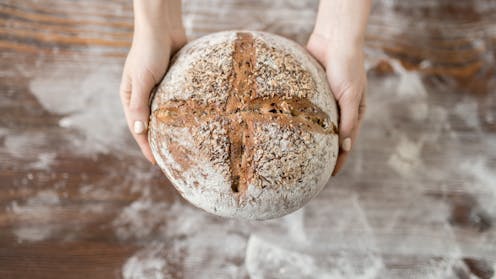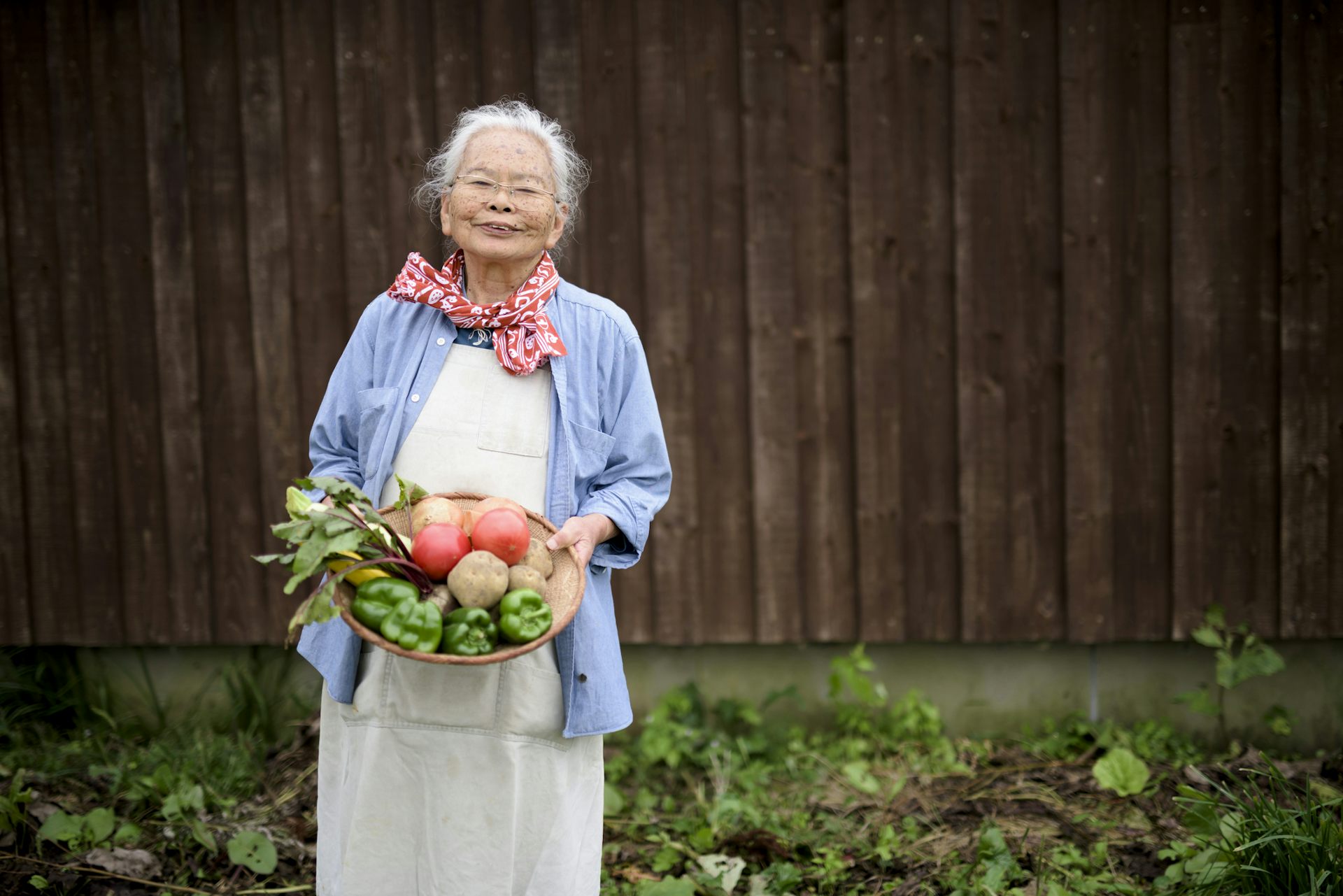Sourdough and submission in the name of God: How tradwife content fuses femininity with anti-feminis
Tradwives influencers’ throw-back aesthetics mask a divisive ideology about women’s roles, two scholars of extremism explain.

When people think about online misogyny, they probably envision forums and video game chat rooms filled with young men using lewd language, promoting sexist stereotypes and longing for the good old days when women “knew” their place. Arguably the most popular anti-feminist content today, though, is produced by women: tradwives.
The term “tradwife” is an abbreviation of “traditional wife” – often portrayed on these platforms as a white, married, stay-at-home mother. Since the mid-2000s, tradwives have developed a substantial online presence and following, introducing their lifestyle and views to masses of women.
Many viewers are introduced to tradwife content through videos on cooking or decorating – posts that could appeal to a wide audience. But at the core of the tradwives movement are more divisive beliefs: that women are meant to “submit” to their husband’s leadership, for example, or are not meant to work outside the home.
We define misogyny as hatred, prejudice or hostility directed toward women as a group. Many tradwives argue that their lifestyle empowers women to fulfill their true role. Yet some content in the tradwife landscape is indeed rooted in misogynistic beliefs that women are, in some ways, less capable than men. And much more “trad” content is directly opposed to feminist ideas, such the importance of women’s economic independence and sexual freedom.
A growing number of academics and news reports have highlighted tradwives’ growing cultural influence. There’s been less attention, however, on one of the most prominent features distinguishing them from other misogynist online movements: the role of religious beliefs.
As researchers of extremism, we have been working on a new book about the contemporary landscape of misogyny, examining movements such as “incels” and “men’s rights” activists, as well as chauvinist far-right groups such as the Proud Boys.
As part of our research, we analyzed hundreds of tradwife social media posts, videos and blogs. We assert that tradwife culture is not just aiming to restore “traditional” gender roles. It is also an important force in formulating a new model of womanhood: one that incorporates strong religious identity, a specific feminine aesthetic, and far-right ideas.
Filtered femininity
Tradwives create content that fuses what they call “traditional” and “feminine” lifestyles. Specifically, they tend to emphasize the importance of a wife’s submissiveness to her husband, immersion in conservative Christian values, and support for causes such as anti-abortion advocacy. Yet “tradwife’ content spans a broad spectrum: Some influencers focus on relatively apolitical topics like baking and parenting, while others combine those with more ideologically charged content.
In addition, tradwives stress self-sufficient homemaking skills, such as eating homemade and unprocessed food. At times, that emphasis on "wholesomeness” or living “naturally” includes skepticism about mainstream health care, as well as touting “naturopathic” or alternative medicine.
One of the main reasons so many viewers are attracted to the tradlife content is their nostalgic and calming aesthetic, including a focus on cottage-core content: quaint scenes that evoke life on the prairie, capitalizing on viewers’ nostalgia and desire for escapism.

This type of soft-living content is inviting and relaxing. Loose wavy hair, fresh homemade cooking and a farmhouse aesthetic bring to mind “Little House on the Prairie” and help viewers forget the crises of the world outside. We can’t help but feel like we are in the influencer’s kitchen, smelling freshly baked bread and hearing the laughter of children frolicking about.
Yet nothing about tradlife content is effortless. The filters and glamour of Instagram never reflect the hours influencers spend setting up their homes, testing recipes, buying filming equipment and fixing up their appearance for these videos, as shown in countless “get ready with me” videos.
Nevertheless, tradwives often glorify the idea of women’s helplessness,. Some encourage women to focus on what tradwives call “pink jobs,” such as homemaking or child-rearing tasks, not physically demanding “blue jobs,” such as house repairs or extensive landscaping.
In tradwives’ narrative, women aren’t “wired” or “made” to be in the workforce or to be the breadwinner. It is not only too demanding, some of these influencers argue, but actually against nature and God’s intentions to try to “have it all.”
Faith and submission
Most tradwife influencers who talk about faith are Christians of one denomination or another, including Catholics and members of the Church of Jesus Christ of Latter-Day Saints. During analysis for our forthcoming book, we analyzed language in a sample of 23 videos from the seven most popular influencers and found that “God” was the fourth-most popular term – following “women,” “life” and “husband.”
For many influencers, religious piety is a crucial component of their views on gender and convincing viewers to embrace them – particularly their belief that a wife’s fundamental role is to let God and her husband lead the way. Thus, while they don’t necessarily see men and women as unequal, they believe men and women have different roles and different abilities.
Insisting that God is on their side also enhances influencers’ sense of community with their followers, making some platforms almost seem like a parish. They will emphasize specific biblical verses supporting the norms they advocate – such as Titus 2:5, which they interpret as advising women to stay at home; and Genesis 1:28, in which God commands humans to “be fruitful, and multiply.”
“Womanhood is not a man-made idea constructed from ancient traditions and cultural trends,” the sisters behind the YouTube channel “Girl Defined” write in their book, “Made to be She: Reclaiming God’s Plan for Fearless Femininity.” “It’s a God-designed reality that He established from the beginning of time.”
Political voice
Some tradwife influencers focus on household management and religious content, while others are bolder in their political commentary – from simple TikToks to hours of live-streamed podcasts with guest speakers discussing hot-button issues. One frequent theme is opposition to abortion, especially since the overturning of Roe v. Wade in 2022.
The LGBTQ+ rights debate and related questions about how to define a woman have also become a focus for many tradwives, who argue only God can assign gender, and that it is synonymous with biological sex.

In some cases, tradwives’ advocacy extends to white nationalism and nativism. For example, some tradwives will justify the virtue of a large family by alluding to the importance of maintaining a white, Christian majority in the United States.
Modern anxiety
Much of tradwives’ messaging revolves around cultural flash points, problems that underscore anxiety about modern womanhood: challenges in forming stable relationships, providing nutritious meals, and building a career while trying to raise a family. One popular video on the Girls Defined channel, less than a minute long, warns viewers about birth control, Planned Parenthood, feminism and mood stabilizers. “Women, through all the years of feminism, through all the years of freedom, women are more depressed, more anxious, hurting more than ever,” one of the sisters says, “and what we are being told to do is not working.”
These challenges are presented as inevitable consequences of abandoning divinely ordained feminine roles – positioning religious tradwives’ messages as not merely personal opinions, but sacred truths. Any effort to counter misogynist messaging on these platforms, we argue, cannot just rely on facts, but exposing followers to other visions of what it means to be a religious woman.
The authors do not work for, consult, own shares in or receive funding from any company or organization that would benefit from this article, and have disclosed no relevant affiliations beyond their academic appointment.
Read These Next
How Homeland Security’s subpoenas and databases of protesters threaten the ‘uninhibited, robust, and
It’s difficult to measure what is lost when an opinion is never voiced and impossible to catalogue…
Supreme Court rules against Trump’s emergency tariffs – but leaves key questions unanswered
The ruling strikes down most of the Trump administration’s current tariffs, with more limited options…
Why the ‘Streets of Minneapolis’ have echoed with public support – unlike the campus of Kent State i
In 1970, National Guard troops killed four protesters at Kent State University. In 2026, federal agents…






